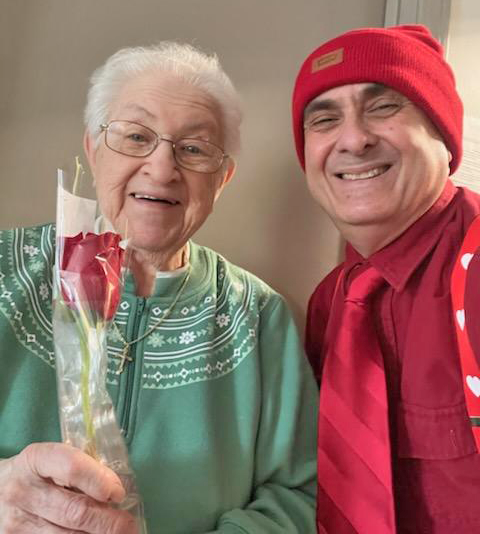Caregiver Resources
Caregiving can be both rewarding and challenging. We have put together an assortment of resources to help you. For questions about these, or other caregiving concerns or supports, please contact the Family Caregiver Support Program at SMAA.
If you require assistance in accessing the resources listed below, please contact us at 1-800-427-7411.
Caregiver Self Care
Resources for Planning Ahead
- Plan Your Lifespan – an interactive website to help plan for health events such as hospitalizations, falls, and memory loss that may happen as people get older. It provides an easy-to-use tool that you can fill in with your plans, make updates as needed, and share with family and friends.
- Beginning Planning Worksheets (PDF)
- Guidebook for the Caregiving Journey (PDF) – an older adult/caregiver workbook for gathering information, identifying resources,comparing living alternatives, and compiling legal and financial information. (Generously shared by MaineHealth’s Partnership for Health Aging.)
- Helpful Resources for Health Care Decisions and Planning (PDF)
- Maine Healthcare Advance Directive Forms
- The Day After Guide (PDF) – a guide to assist those you leave behind after your death with the process of dealing with your financial affairs, courtesy of Smilie Gregg Rogers, Esq., Law Office of Smilie G. Rogers, PLLC.
- Maine Long-Term Care Programs (PDF)
Understanding Living Options
General Information
- Communities for Older Adults (PDF)
- Comparing Costs of Living Options (PDF)
- Comparing Priorities for Living Options (PDF)
Living at Home
- Evaluating Non-Medical Home Care Checklist (PDF)
- Evaluating Home Safety Checklist (PDF)
- Hiring an In-home Care Company (PDF)
- Hiring Help Privately (PDF)
- Hiring Home Care Privately Checklist (PDF)
- Living Together Checklist – For Caregiver (PDF) / For Older Adult (PDF)
- How do I get Home Care Services in southern Maine? (PDF)
Adult Day Programs
Assisted Living
Nursing Facilities
Assisting a Person with Dementia
- Caring for a Person with Alzheimer’s Disease (PDF) – a comprehensive guide that offers easy-to-understand information and advice for family caregivers of people with progressive dementia. A publication of the National Institutes of Health and National Institute on Aging.
- Family Caregiver Guide (PDF) – a comprehensive overview of dementia written by the New York City Chapter of the Alzheimer’s Association.
- Handling Holidays and Visits (PDF) – ideas for people with family members who have dementia.
- Ten Real Life Strategies for Dementia Caregiving (PDF) – courtesy of the Family Caregiver Alliance.
- Traveling with a Person with Dementia (PDF)
- What to Do When the Diagnosis is Dementia (PDF)
- Alzheimer’s Association
- Communication, Behaviors, and Meaningful Engagement Packet (PDF) – This document is the handout packet for our Understanding Cognitive Loss: Communication, Behaviors, and Meaningful Engagement training. If you are interested in listening to this training please access it here: Recorded Trainings – Southern Maine Agency on Aging
Useful Tools and Information
- Caregiving as a Family Handout Packet (PDF)
- Conversation Starter Guide (PDF) – a publications of the Institute for Healthcare Improvement (ihi.org)
- Emergency Response Systems (PDF)
- Family Caregiver Alliance Fact Sheets and Publications
- File of Life (PDF)
- Financial and Legal Guidance for Caregivers (PDF)
- Handbook for Long Distance Caregivers – a publication of the Family Caregiver Alliance
- Helpful Caregiver Websites (PDF)
- HIPAA: Questions and Answers for Family Caregivers – a publication of the United Hospital Fund
- Hospice Services Overview (PDF)
- Housing with Services Options Guide (PDF)
- How do I become a paid caregiver for a family member? (PDF)
- How to Have Conversations with Older Adults about What Matters (PDF) – a publication of the Institute for Healthcare Improvement (ihi.org)
- Maine Long Term Care Programs (PDF)
- Online Tools for Caregivers (PDF) – create a password protected site to share information with family and friends.
- Starting the Long Term Care Insurance Search (PDF) – a guide to help you choose a policy, courtesy of Kerry Peabody, CSA, CLTC, Clark Insurance
- Understanding Your Long Term Care Policy (PDF) – a guide to help interpret your policy, from The Eldercare Team
- What to Do When Your Spouse Dies (PDF)
- Where to Find Important Papers (PDF)
- Who Will Help? (PDF)
- Your Discharge Planning Checklist (PDF) – a publication of the Center for Medicare and Medicaid Services
Resources from SMAA Staff
- “Are You a Family Caregiver?” by Lori Campbell
- “The Four Most Asked Questions by Caregivers” by Robyn Berry
- “Caregivers in Mid-Life: Feeling Isolated and Lonely and Options for Staying Well” by Katlyn Blackstone
- “The Reality of Being a Caregiver,” interview of Marilyn Durgin with a family caregiver
Caregiving in the Media
The Challenge of Our Age – section of this special series focused on caregiving.
